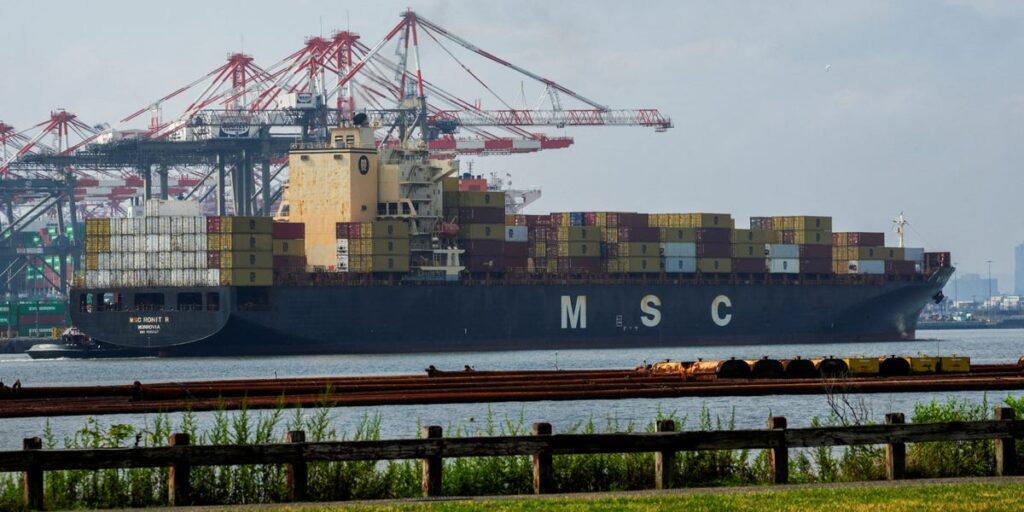The end of a long-standing duty exemption for low-value items is creating chaos for small American businesses.
Peri Olson, founder of Diesel and Lulu’s, a boutique business that brings seasonal premium European apparel to US shoppers, told Business Insider that she feels like her goods are facing a “hostage situation” at the hands of customs.
The de minimis exemption used to allow goods under $800 to enter the US duty-free and with minimal paperwork. But since it ended on August 29, Olson’s small-batch imports from Europe are facing duties she could not predict based on nuanced material and provincial differences in the customs code. These duties are on top of the existing tariffs the Trump administration has imposed on the EU bloc.
Olson said that her most recent order from a small European vendor is worth $660. Not only has the shipping cost gone up from $90 to $150 compared to a previous order of similar weight and value, but she is also facing a duty of $251. Vendors are also not responsible for refunds should the receiver be unable to pay the duty, and the item gets returned.
“We’re taking it day by day now,” said Olson, whose boutique has expanded to six locations across the country since its establishment in 2012 in Cape Cod in Massachusetts.
“We’re going to have to absorb a good deal of the costs while we wait it out to see what happens, but we can’t absorb it all,” Olson added. “If my business were to fold, you’re talking about the impacts on all of the employees, the artists we work with, and our philanthropic activities like fundraisers for individual families and animals.”
The de minimis threshold has been part of US customs since the 1930s, and it has stood at $800 since 2016. The duty-free shipments ceased first for Hong Kong and China on May 2, followed by the rest of the world on August 29.
Ahead of the end of the exemption, over 30 countries’ main postal services, including Norway, Singapore, and Denmark, temporarily suspended shipments to the US, citing their inability to process prepaid duties, customs paperwork, and returns.
Some postal services, such as the British Royal Mail, have resorted to a hefty flat fee for handling US-bound parcels for at least half a year.
Consumers may face permanently higher price points
Analysts and business experts told Business Insider that they are concerned about the survival of small businesses and the impact on consumer sentiment.
Jacob Bennett, CEO and cofounder of small business banking platform Crux Analytics, told Business Insider that he is seeing a spike in searches for information on how to access emergency business funding, cover unexpected costs, and wind down or close a business.
Bennett pointed to data from the American Chamber of Commerce that small businesses employ nearly half of the American workforce and contribute more than 40% of the country’s GDP, and said that the downstream effect of the burden on smaller businesses will begin to show.
“Small businesses are the first to feel the effect, and they feel it the most acutely, but that effect does trickle down to the wider economy,” said Bennett. “The point isn’t that change is bad necessarily, it’s that change needs to be thoughtful, and the transition needs to be reasonable in terms of timeline and speed.”
Martin Balaam, CEO of Pimberly, a product data management platform for global retail, told BI that businesses tend to adapt over time, but prices will become sticky.
He pointed to how Shein and Temu, whose vast amount of small parcel shipments to the US originally drew attention to the issue of duties, figured out a workaround by bulk shipping to the US before redistributing the items to avoid duties on individual packages.
“The paperwork sounds difficult now, but this will get normalized, and ultimately you’ll still be left with the increased cost,” said Balaam.
“I do think that US consumers understand that it’s not fair for the domestic market for other countries to have a fast-track express, duty-free methodology of delivering and selling their goods here,” Balaam added. “But when price inflation starts coming through, they’ll probably not be too happy about it.”
Read the full article here


